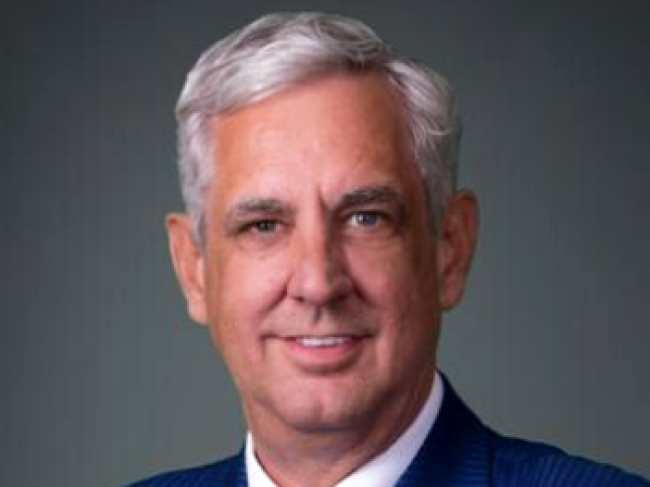A first-time or second-time DUI in Illinois is typically charged as a misdemeanor, not a felony. However, a third-time DUI or a drunk driving case where someone suffers great bodily harm will be treated as a felony in Illinois. If you’ve been arrested for DUI in Illinois, you should contact an attorney right away to protect your rights.
Illinois DUI Laws
Illinois DUI FAQ
Can I Still Drive After an Illinois DUI Conviction?
There are generally three situations in which the Illinois Secretary of State will require that you drive on a RDP/hardship license before being considered for full reinstatement of your driver's license:
1) The driver is not eligible for full reinstatement;
2) The driver is revoked for DUI and is eligible for full reinstatement but has not previously held a RDP and the Illinois Secretary of State determines that the person should first drive on a RDP as a probationary device; or
3) Even if eligible for full reinstatement, the driver has been convicted of DUI on 2 or more occasions in which case the driver will be required to drive on a RDP (subject to breath alcohol ignition interlock device (“BAIID”) requirements) for five-years before becoming eligible for full reinstatement.
If you are not yet eligible for reinstatement at the time of your application for a RDP/hardship license, then you must first establish that if granted driving privileges you will not pose a risk to the public safety and also that you have an extreme hardship resulting from the loss of your drivers license. Typically, the extreme hardship results from the driver being subject to termination from employment due to a lack of driving privileges.
Under Illinois law, there are several different types of RDPs available to you: employment, medical care, alcohol/drug rehabilitative activities (e.g., Alcoholics Anonymous meetings), child care or elder care. These hardship licenses may be granted for the purpose of transporting yourself or a member of your household.
BAIID Required Permit (Ignition Interlock Device)
If ineligible for any of the Illinois hardship licenses mentioned above, a driver may be eligible for a BAIID Required Permit. The BAIID Required Permit is limited to five days per week, eight hours per day, and a 200 mile radius from the driver's home. This permit is extremely limited in application, as the driver must not be able to show eligibility for any of the other Restricted Driving Permits available under Illinois law.
Obtaining a RDP
- To obtain an RDP, the offender must prove a hardship exists, provide a current professional alcohol/drug evaluation and, when appropriate, provide proof of remedial education or treatment.
- An offender must appear before a hearing officer in the Secretary of State's Department of Administrative Hearings. The driving record is reviewed to ensure that the driver would not threaten public safety if allowed to drive on a limited basis.
- An offender with two or more alcohol-related driving incidents on his/her driving record is required to have a BAIID installed on his/her vehicle for the duration of the RDP. The offender is responsible for all costs associated with the BAIID during this period.
- An offender requesting a formal hearing for an RDP or reinstatement of his/her driving privileges will be charged a $50 nonrefundable filing fee when requesting the formal hearing.
- A driver under age 16 whose driving privileges are revoked is not eligible for an RDP.
What Can I Expect After an Illinois DUI Arrest?
A DUI arrests in Illinois triggers two separate cases: A court case and an administrative case.
Court Case
A court case is where the punishment can include criminal charges and have penalties like jail, fines, a suspended driver's license, required alcohol education classes, and more. A first-time or second-time DUI is typically charged as a misdemeanor, not a felony. However, a third-time DUI where someone suffers great bodily harm will be treated as a felony. Typically, penalties for a first DUI conviction can come with jail time but it is not a requirement. If the driver's BAC was .16% or higher, then the penalties can include at least $500 in fees plus 100 hours of community service. A second or subsequent DUI conviction can bring forth harsher penalties including license revocation and up to 7 years in prison.
Administrative Case
An Illinois drunk driving arrest will also trigger an administrative driver's license suspension. After an Illinois DWI, your driver's license will automatically be suspended 46 days after your arrest. You have a right to an administrative hearing to fight the suspension. An Illinois DUI attorney can file the petition on your behalf or you can try and file yourself. Because a DUI attorney has experience with Illinois Administrative Hearings and petitions, it's important to consult with one as soon as you can. The sooner you file the petition, the better your case can look at the day of your hearing.
After the hearing, one of 3 things may happen:
- You can get full reinstatement
- You can get denied
- You can get denied full reinstatement but given a permit to drive to and from work, school, alcohol treatment, or child care.
If you are granted a permit, it will be good for 1 year and then you’ll have to go back for another hearing before it expires.
What Are the Penalties for an Illinois DUI Conviction?
The penalties for an Illinois DUI conviction depends on whether it is a first DUI or subsequent one. It also depends on the blood alcohol concentration (BAC), if bodily injury or death was caused because of the DUI, and if there was a minor in the vehicle.
Illinois DUI Court Supervision
A first Illinois DUI offender can receive court supervision, a sentence available once in a person’s lifetime. It is the best possible result aside from dismissal or a finding on ‘not guilty’ after trial on a misdemeanor offense. court supervision is not view as a conviction. The criminal case is dismissed after successful completion of court supervision, but can't be expunged from the public record. Court supervision is not an available sentencing option for felony offenses.
Criminal Conviction Penalties
If a person is convicted of an Illinois DUI, the penalties is up to one year in prison and up to $2500 in fines. If the a person is convicted of a second DUI within five years of the first conviction, then the person must serve a mandatory 5 days in prison or 240 hours of community service. For a third or fourth conviction within five hears of the previous violation, then it is considered aggravated driving and is guilty of a class 2 felony that is punishable by three to seven years in prison and up to $25,000 in fines. Penalties go up for a BAC of .16 or higher. A fifth DUI conviction is a Class 1 felony and comes with 4 to 15 years in prison and $25,000 in fines. A sixth Illinois DUI conviction is a Class X felony punishable by 6 to 30 years in prison and up to $25,000 in fines. Penalties also increase if there is a BAC of .16 or higher.
Additional Criminal Convictions Penalties with a BAC .16 or Higher
A first Illinois DUI conviction where the BAC was .16 or higher is subject to an additional $500 fine and a mandatory minimum of 100 hours of community service. For a second DUI conviction within 10 years of a previous conviction is an additional mandatory 2-day minimum in prison and an additional $1,250 in fines. For a third DUI conviction within 20 years of a previous conviction is an additional mandatory 90-day minimum in prison and an additional $2,500 in fines.
Additional Criminal Conviction Penalties for DUI while Transporting a Child Under 16
The penalty for transporting a child under 16 while under the influence is subject to an additional two days in prison, a mandatory minimum fine of $1,000, an additional mandatory minimum 140 hours of community service, where 40 of those hours must include a service benefiting children.
Driver's License Revocation Penalties
If you are convicted of an Illinois DUI, your driver's license will be revoked. First time DUI convictions have a revocation period of one year. You still have to apply for reinstatement after the end of the revocation period ends. If the BAC was .16 or more, then the application for reinstatement would be available until after two years. The reinstatement may or may not be granted so it is important to consult with an Illinois DUI attorney about the license reinstatement process. For a second DUI conviction within 20 years of the first conviction, the reinstatement application is not available until after five years. A third DUI conviction within 20 years of the last conviction cannot apply for reinstatement until after 10 years. For a fourth DUI conviction, application for reinstatement is not available.
Ignition Interlock Penalties
The use of an ignition interlock device may be required for repeat offenders. The time period is deemed by the Secretary of State of Illinois.
Commercial Driver Additional Penalties
Commercial drivers who are convicted of an Illinois DUI are subject to at least one year or disqualification from driving a commercial vehicle. If the driver was driving a commercial vehicle and transporting hazardous material, then the disqualification period is a minimum of three years. If a commercial driver is convicted of a second DUI, then the driver will be disqualified from driving a commercial vehicle for life.
School Bus Drivers Additional Penalties
If a person commits a DUI while driving a school bus with a person 18 or younger is guilty of aggravated DUI and faces one to three years in prison and is subject to pay a fine of up to $25,000.
Illinois DUI Drivers Under 21 Additional Penalties
An underage driver who commits DUI will have a one-year license suspension and may be ordered to participate in Illinois’ Youthful Intoxicated Drivers’ Visitation Program.









